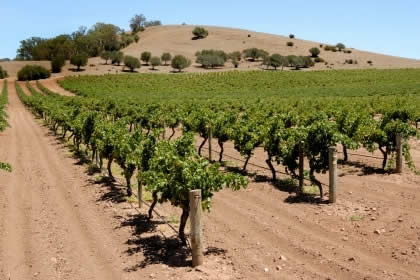Australia Information
Capital city: Canberra, Australian Capital Territory
Area: 2,966,136 sq miles [Source: Lonelyplanet.com]
Population: 19,500,000 [Source: Lonelyplanet.com]
Most popular destinations: Sydney, Melbourne, Uluru (Ayers Rock), the Great Barrier Reef, the Gold Coast, the Barossa Valley, Kakadu National Park
Time zones: GMT/UTC +10 (Eastern Standard Time – used in Queensland, New South Wales, the Australian Capital Territory, Victoria and Tasmania), GMT/UTC +9.5 (Central Time – used in the Northern Territory and South Australia), GMT/UTC +8 (Western Time – used in Western Australia). All states except Queensland, the Northern Territory and Western Australia observe daylight savings from October to March.
Language: English is the official language, although due to Australia’s multicultural population many other dialects are spoken.
Religion: 75% Christian, 1% Muslim, 1% Buddhist, 0.5% Jewish
Currency: Australian Dollar (A$)
Electricity: 220-240V 50Hz. Power sockets are uniquely Australian, with two flat angled slots and one vertical one. Travelers are advised to purchase a plug adaptor and voltage converter before they leave their country.
Dates: Written in the format day/month/year
Country dialing code: 61
Telephone numbers: Australian telephone numbers beginning with 1800 are toll-free. Australian telephone numbers beginning with 13 and 1300 are charged at the local rate of A25¢. Australian phone numbers beginning with 1900, 1901 or 1902 are pay-for-service lines. These incur charges as high as $5 a minute. Emergencies: Dial 000 from any telephone in Australia to contact police, ambulance and the fire department in an emergency. This is a free call service, so there is no need for coins.
Telephone assistance: Dial 12455 from any telephone in Australia for directory assistance.
Maps: Available from most bookstores, newsagents and major gas stations, called “petrol stations”
Business hours: General business hours (including banks and post offices) are 9 am to 5 pm from Monday to Friday. Shopping hours are usually 9 am to 5:30 pm from Monday to Friday, 9 am to 5 pm on Saturdays and 10 am to 4 pm on Sundays and trading public holidays.
Taxes: A Goods and Services Tax of 10% is built in to the price of many goods and services. Items purchased in duty-free stores and basic groceries do not incur this tax.
Internet access: Available throughout most of the country. Even small towns generally have at least one internet café.
Newspapers: The Australian is Australia’s national daily newspaper. Most capital cities also have their own daily newspapers that give greater coverage of state news items.
Pets: Due to lengthy quarantine periods, travelers are advised to leave their pets at home.
Tipping: Tipping is not customary or expected in Australia.
Water: The quality of water is acceptable to drink throughout Australia.
Alcohol: Minimum drinking age is 18. Most pubs are open from 10 am to midnight. Alcohol is also sold in liquor stores, called “bottle shops,” attached to pubs and supermarkets in some states. Random breath testing by police looks to catch drivers with a blood alcohol level above 0.05%.
Smoking: Minimum smoking age is 18. Smoking is banned in many public areas, including museums, theatres, airports, hospitals and offices. Restaurants have also banned all smoking inside, although some allow diners to smoke when dining outdoors.
